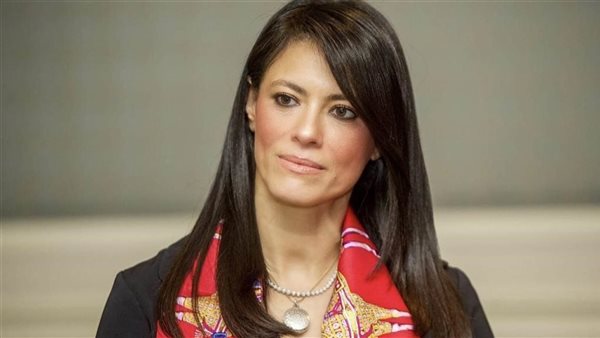Dr. Rania El-Mashat, Egypt’s Minister of Planning, Economic Development, and International Cooperation, participated in a high-level plenary session titled “The True Cost of Economic Security” during the ninth edition of the Future Investment Initiative conference in Riyadh, held under the theme “Gateway to Prosperity.” The event brought together heads of state, government leaders, and finance and economy ministers from around the world at the King Abdulaziz International Conference Center.
The session was chaired by several prominent leaders, including Mohamed Irfaan Ali, President of Guyana; Paul Kagame of Rwanda; Vjosa Osmani Sadikaj, President of Kosovo; Gustavo Petro of Colombia; Rumen Radev of Bulgaria; Edward David Burt, Premier of Bermuda; Edi Rama, Prime Minister of Albania; alongside notable figures such as Matteo Renzi, former Italian Prime Minister, Ali Ahmed Al-Kuwari, Qatar’s Finance Minister, Fuat Oktay, Vice President of Turkey, and various international economic experts.
In her remarks, Dr. El-Mashat emphasized that investing in economic security and resilience constitutes a global public good. She stressed the importance of aligning international financing and investment flows with national development priorities to foster inclusive and sustainable growth. Reducing geopolitical tensions, she noted, is essential to stabilizing markets and strengthening economic stability across nations.
She underscored that global economic security cannot be achieved without comprehensive financial and investment partnerships that balance national interests with shared global objectives. Effective coordination between international initiatives and domestic agendas is vital to building economies better equipped to withstand global shocks and crises.
El-Mashat also addressed the impact of trade tensions and protectionist policies on global supply chains, warning that rising trade barriers negatively affect international investment flows and commerce. She called for a balanced approach that safeguards national interests while promoting shared prosperity.
On foreign direct investment (FDI), she highlighted findings from United Nations reports indicating a global decline in investment flows due to geopolitical instability. This trend, she said, underscores the need for clear incentives and guarantees to attract capital into developmental sectors, enabling countries to increase spending on human development and upgrade economic infrastructure.
Digital transformation, technological innovation, and clean energy investments offer significant growth potential, El-Mashat noted. Green economy investments and low-carbon technologies are giving rise to new export-oriented industries, such as solar panel manufacturing and renewable energy components, contributing to a more sustainable and inclusive economic model.
She concluded by stating that the real cost of economic security does not lie in tariffs or protectionist measures themselves, but in their misuse. When protection is linked to performance and innovation, it becomes a catalyst for growth rather than a barrier. Economic resilience, she added, is built through diversification, skills development, and digital inclusion—not isolation. The rise of artificial intelligence and the green economy, if equitably accessible, can serve as powerful engines of productivity and shared prosperity.
— news from (بانكير)
— News Original —
المشاط: تحقيق الأمن الاقتصادي العالمي يتطلب شراكات تمويلية واستثمارية متكاملة
شاركت الدكتورة رانيا المشاط، وزيرة التخطيط والتنمية الاقتصادية والتعاون الدولي، في جلسة رئيسية رفيعة المستوى بعنوان «التكلفة الحقيقية للأمن الاقتصادي»، ضمن فعاليات النسخة التاسعة من مؤتمر مبادرة مستقبل الاستثمار، المنعقد بمركز الملك عبد العزيز الدولي للمؤتمرات بمدينة الرياض، تحت شعار «مفتاح الازدهار»، بمشاركة عدد من رؤساء الدول والحكومات ووزراء الاقتصاد والمالية من مختلف أنحاء العالم. n nوترأس الجلسة عدد من القادة والمسؤولين، من بينهم محمد عرفان علي رئيس جمهورية غيانا، وبول كاجامي رئيس رواندا، وفيوسا عثماني صادريو رئيسة كوسوفو، وغوستافو بيترو رئيس كولومبيا، ورومين راديف رئيس بلغاريا، إلى جانب إدوارد ديفيد بيرت رئيس وزراء برمودا، وإيدي راما رئيس وزراء ألبانيا، وبمشاركة عدد من الشخصيات الدولية البارزة مثل ماتيو رينتسي، رئيس وزراء إيطاليا الأسبق، وعلي أحمد الكواري وزير المالية القطري، وجودت يلماز نائب رئيس الجمهورية التركية، وعدد من وزراء الاقتصاد والخبراء الدوليين. n nوفي كلمتها، أكدت الدكتورة رانيا المشاط أن الاستثمار في الأمن الاقتصادي وتعزيز المرونة يمثلان منفعة عامة عالمية (Global Public Good)، مشددة على ضرورة مواءمة التمويل والاستثمارات العالمية مع الأولويات الوطنية لتحقيق تنمية شاملة ومستدامة. وأضافت أن خفض التوترات الجيوسياسية من شأنه دعم استقرار الأسواق وتعزيز الأمن الاقتصادي للدول المختلفة. n nوأشارت الوزيرة إلى أن تحقيق الأمن الاقتصادي العالمي لا يمكن أن يتم بمعزل عن شراكات تمويلية واستثمارية متكاملة، توازن بين المصالح الوطنية والأهداف العالمية، مؤكدة أهمية تعزيز التنسيق بين الجهود الدولية والأولويات الوطنية لبناء اقتصادات أكثر قدرة على الصمود في مواجهة الأزمات والصدمات العالمية. n nوتطرقت «المشاط» إلى تأثير التوترات التجارية والسياسات الحمائية على سلاسل الإمداد العالمية، لافتة إلى أن زيادة الحواارات التجارية تؤثر سلبًا على التدفقات الاستثمارية والتجارة الدولية، داعية إلى تحقيق توازن بين حماية المصالح الوطنية والرخاء المشترك لجميع دول العالم. n nكما تناولت وزيرة التخطيط التحديات التي تواجه الاستثمار الأجنبي المباشر، موضحة أن تقارير الأمم المتحدة تُظهر تراجعًا عالميًا في تدفقات الاستثمار بسبب الأوضاع الجيوسياسية، مما يستلزم ضمانات وحوافز واضحة لتشجيع الاستثمارات في القطاعات التنموية، بما يُمكن الدول من زيادة الإنفاق على التنمية البشرية وتحسين البنية التحتية الاقتصادية. n nوأكدت أن التحول الرقمي والاستثمارات في التكنولوجيا والطاقة النظيفة تمثل فرصًا حقيقية للنمو، موضحة أن الاستثمار في الاقتصاد الأخضر والتقنيات منخفضة الكربون يخلق صناعات جديدة قابلة للتصدير، مثل تصنيع ألواح الطاقة الشمسية ومكونات الطاقة المتجددة، بما يسهم في تحقيق التحول نحو اقتصاد مستدام وشامل. n nواختتمت «المشاط» كلمتها بالتأكيد على أن التكلفة الحقيقية للأمن الاقتصادي لا تكمن في الرسوم الجمركية أو السياسات الحمائية نفسها، بل في سوء توظيفها، مشيرة إلى أن ربط الحماية بالأداء والابتكار يحولها إلى أداة للنمو لا عائق أمامه. وأوضحت أن المرونة الاقتصادية تُبنى من خلال التنويع واكتساب المهارات والانفتاح الرقمي، لا من خلال العزلة، مؤكدة أن صعود الذكاء الاصطناعي والاقتصاد الأخضر يمثلان محركات جديدة للإنتاجية والنمو المشترك إذا أُتيحت فرصها لجميع الدول.
